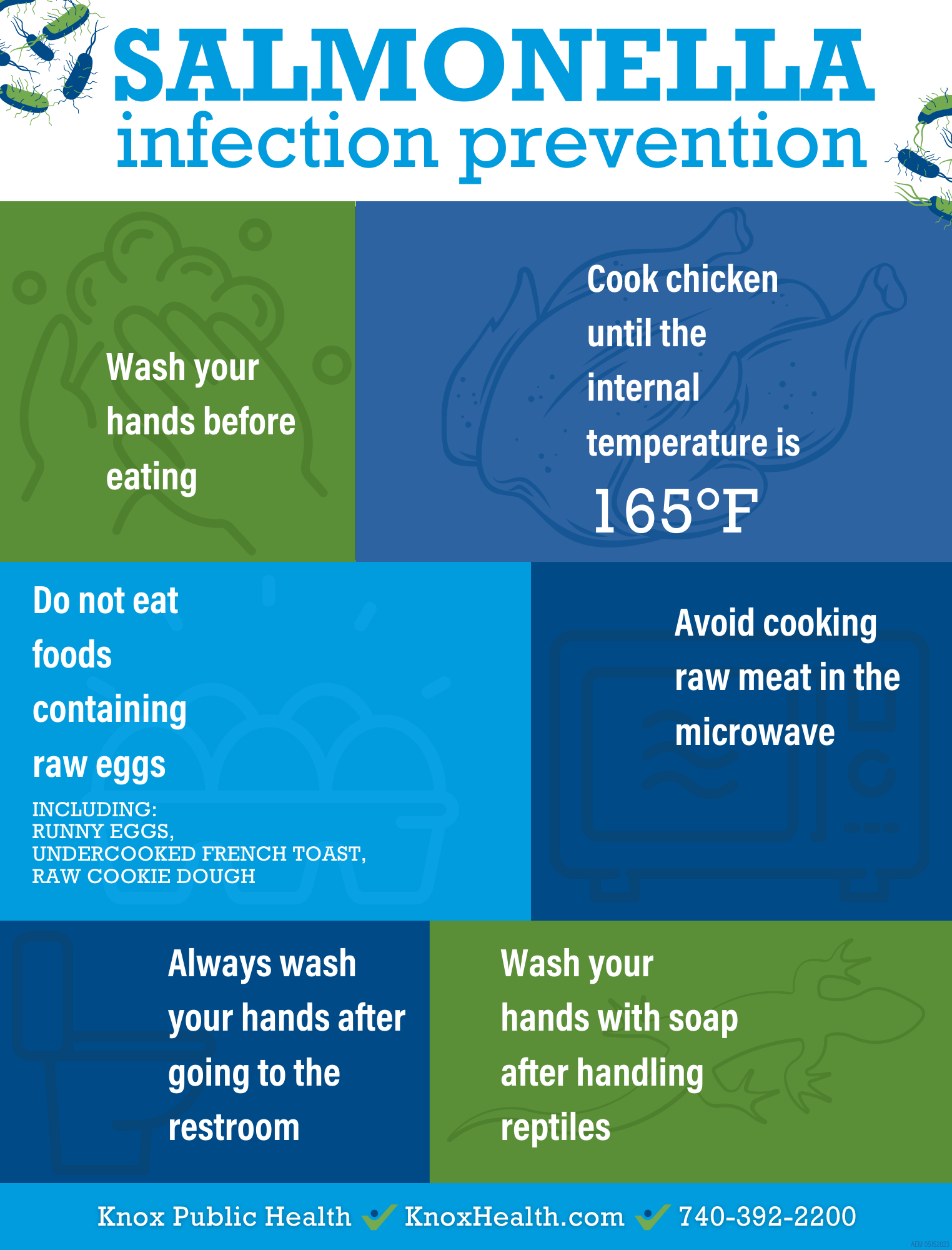
4/19/23 - Knox Public Health (KPH) is reporting an increase in salmonella cases among Knox County residents over the past few months. According to David M. Hatley II, KPH epidemiologist, the reported number of salmonella cases in Knox County has been above average every month so far this year and double for the month of April.
“The number of cases is not overwhelming, but the significant increase is cause for concern as salmonella can be debilitating for young children, older adults or those in poor health. One resident was hospitalized.” said Hatley. “So far, none of the Knox County cases appear to be related to one another - in other words they did not become sick from the same source.” He added that the cases also are not related to a current multi-state salmonella outbreak involving flour.
Salmonella infection is a common bacterial disease that affects the intestinal tract. People become infected most frequently through contaminated water or food. It is typically found in raw or undercooked meat, poultry, eggs and unpasteurized milk.
People can also contract salmonella from infected pets and other animals. Birds (including chickens) and reptiles, may carry salmonella bacteria on their feathers, fur or skin or in their feces. Salmonella can also be found in animal pens, tanks, cages and litter boxes.
Symptoms of salmonella infection include fever, diarrhea, and abdominal pain and in severe cases, hospitalization may be required. Most people develop symptoms within 8 to 72 hours after exposure.
Most healthy people recover within a few days to a week without specific treatment. However, for an infant, young child, older adult or someone who has a weakened immune system, the infection can become serious. In these individuals, when symptoms last more than a few days, and are associated with high fever or bloody stools and include dehydration, a healthcare provider should be contacted.
In addition to infected food and water, improperly handling of food and food preparation can also lead to salmonella infection. Hatley suggested some basic public health practices when preparing food:
- Keep clean your hands, cutting boards, utensils and countertops; wash often;
- Keep raw meat, poultry, and seafood separate from ready-to-eat foods;
- Keep hot foods hot, and cold foods cold; check for the correct temperature;
- Wash fruits and vegetables before eating; Some fresh produce, may be irrigated in the field or washed during processing with water contaminated with salmonella.
Many foods become contaminated when prepared by people who don't wash their hands thoroughly after using the bathroom or changing a diaper or after handling contaminated food. Additionally, if an individual is sick, especially with diarrhea or vomiting, they should not be preparing food for anyone, especially at a business.
